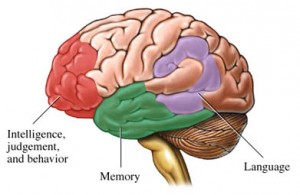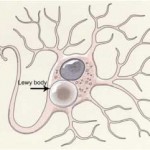Amy’s Grant’s Advice on Caring for Parents with Dementia

Amy Grant has always been known for her strong faith. But the “Queen of Christian Pop” didn’t realized just how far her faith would be tested.
A few years ago, Amy’s mother, Gloria Grant, was diagnosed with Lewy Body Dementia. In 2008, Amy decided to put her career on hold to stay home and care for her mother. Gloria died in May 2011.
Shortly thereafter, her father, Dr. Burton Grant, began to show signs of dementia as well.
Grant shared her family’s story on Katie Couric‘s show this week:
Grant recalled a poignant moment with her mother. As she was leaving the house, her mother asked her where she was going. She said she was going to perform. Her mother said “I didn’t know you sang” and asked her to sing for her. Her mother then told Amy that when she performed she should “sing something that matters.” Grant says she took this message to heart when she subsequently wrote her songs.
“The Last Great Lesson”
When asked why she wanted to come on Katie to talk about caring for her parents, Grant replied that she had been helped by many who had told her their stories and wanted to be able to do the same for others. She had come to realize that what her family was going through was “the last great lesson” she would learn from them. She also wanted to share some tips with those who are caring for aging parents:
What is Lewy Body Dementia?
Dementia with Lewy bodies (DLB) is one of the most common types of progressive dementia.
According to the Lewy Body Dementia Association, DLB is not a rare disease. It affects an estimated 1.3 million individuals and their families in the United States.
 The main feature of DLB is a progressive decline in cognitive functioning. Cognition is a group of mental processes that includes attention, memory, producing and understanding language, solving problems, and making decisions.
The main feature of DLB is a progressive decline in cognitive functioning. Cognition is a group of mental processes that includes attention, memory, producing and understanding language, solving problems, and making decisions.
A patient must also have three additional defining features:
(1) Pronounced “fluctuations” in alertness and attention, such as frequent drowsiness, lethargy, lengthy periods of time spent staring into space, or disorganized speech
(2) Recurrent visual hallucinations
(3) Parkinsonian motor symptoms, such as rigidity and the loss of spontaneous movement.
 People may also suffer from depression.
People may also suffer from depression.
The symptoms of DLB are caused by the build-up of Lewy bodies.
Lewey bodies are accumulated bits of a protein called alpha-synuclein inside the nuclei of nerve cells. They are especially prominent in areas of the brain that control aspects of memory and motor control.
Researchers don’t know exactly why alpha-synuclein accumulates into Lewy bodies or how Lewy bodies cause the symptoms of DLB, but they do know that alpha-synuclein accumulation is also linked to Parkinson’s disease.
There is no cure for DLB. Treatments are aimed at controlling the cognitive, psychiatric, and motor symptoms of the disorder.
Like Alzheimer’s disease and Parkinson’s disease, DLB is a neurodegenerative disorder that results in progressive intellectual and functional deterioration. There are no known therapies to stop or slow the progression of DLB. Average survival after the time of diagnosis is similar to that in Alzheimer’s disease, about 8 years, with progressively increasing disability.
More information about Dementia.
More information about Alzeheimer’s Disease.
Resounding Health Casebook on Lewy Body Dementia
Additional Resources for those dealing with aging parents.
Has your family had to struggle with dementia? Do you have any advice you’d like to share?



























0 comments